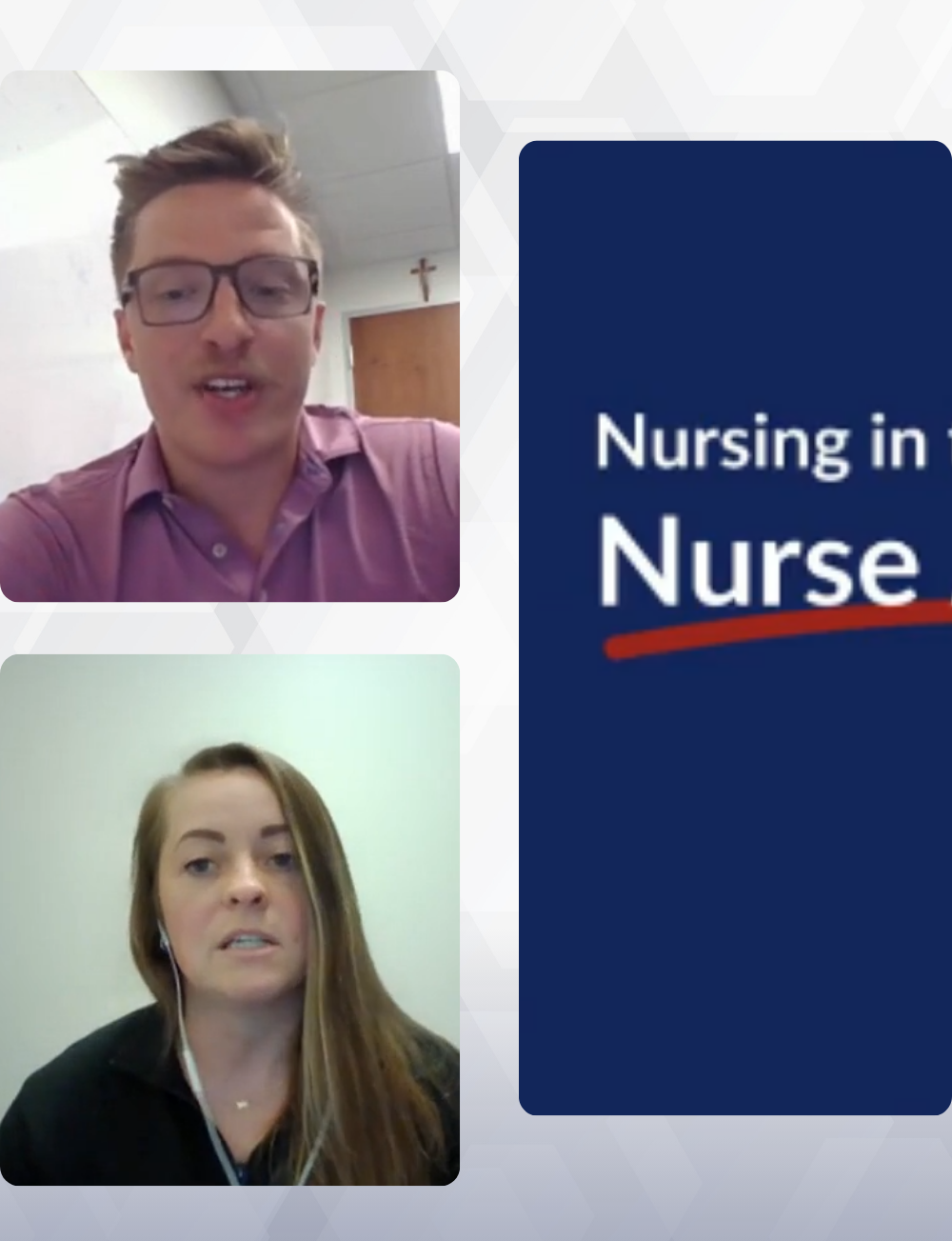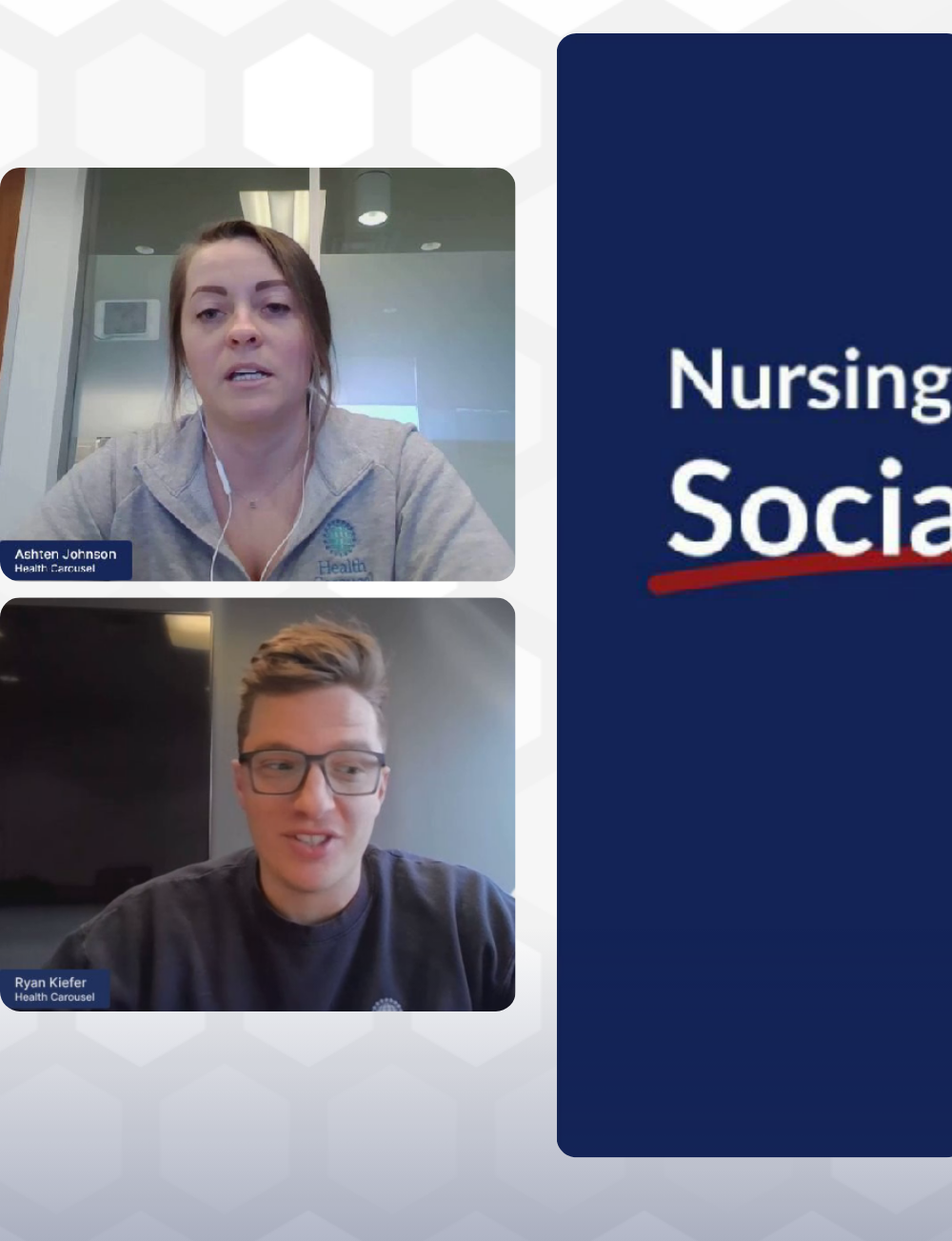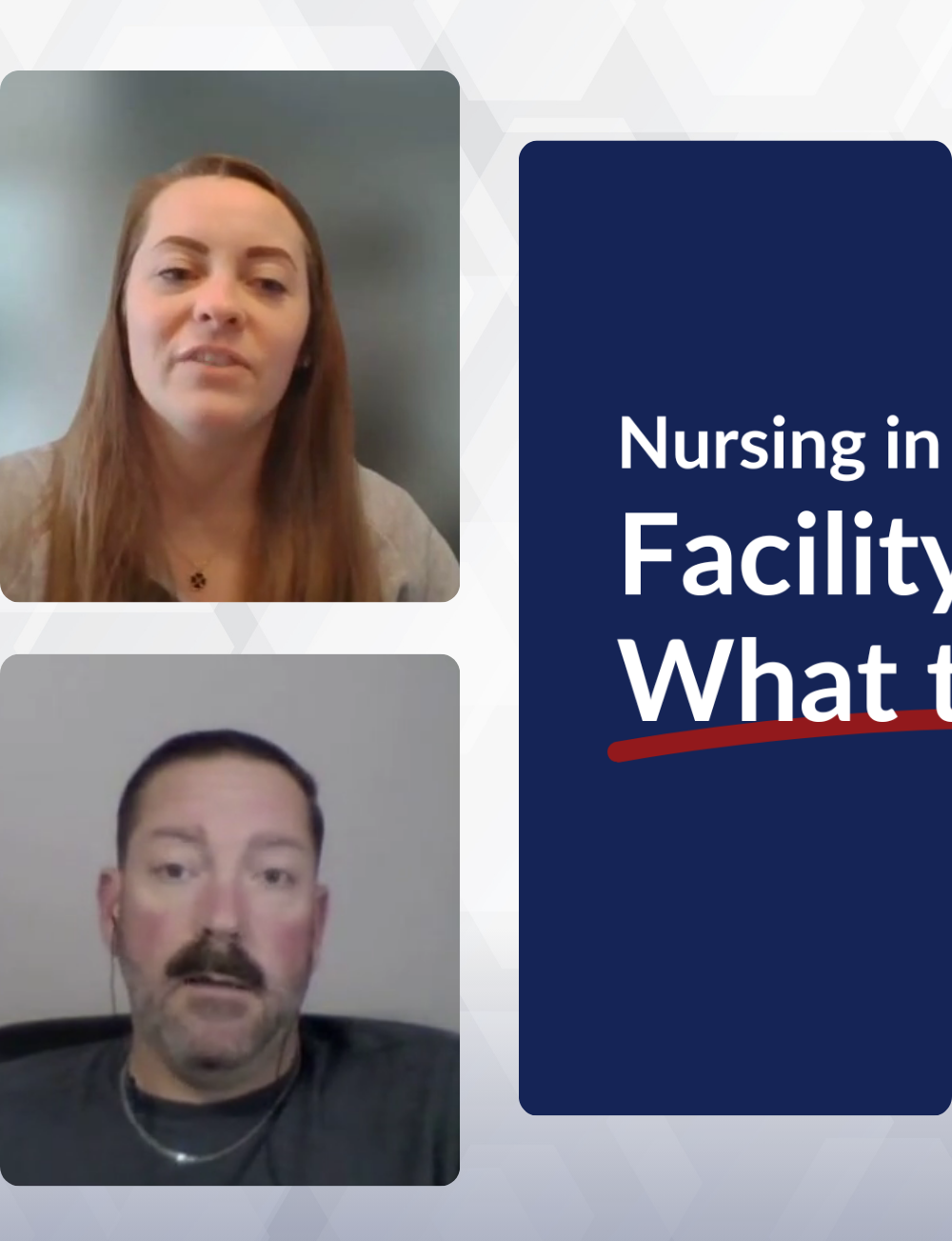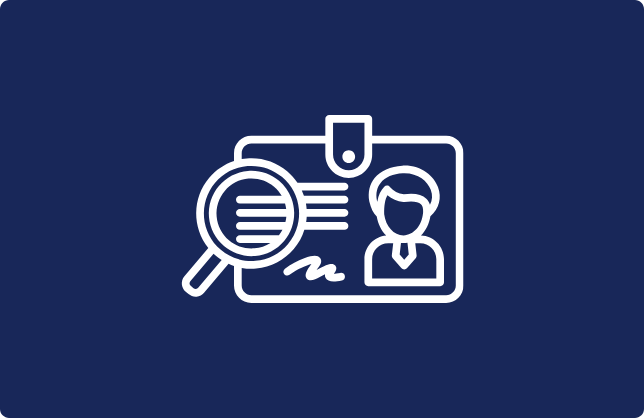Nurse Autonomy in the US

The Resource Center content, including all videos and other media, is for informational purposes only. You should not construe any such information or other material as legal, tax, investment, financial or other advice. The advice and information contained in the Resource Center is not a substitute for advice from a professional who is aware of the facts and circumstances of your individual situation
Transcript
We are going to talk about nurse autonomy. So to help us explore what it means, why it matters, and how it shapes your role as a nurse here in the US, I want to welcome Ashten and Ryan to join me. They are from our clinical team and they are going to talk about what it's like to work as a nurse in the USA. How are you guys doing? Yeah. Hi, Courtney.
Hey, Courtney. Doing well. Great to be here.
Yeah. Happy to have you on.
Great. Yeah. We're excited to be here.
Perfect. Well, let's go ahead and dive in and get started.
All right. Sounds good. And so, nurse autonomy is extremely important in nursing in the US. And so first, let's talk about, like, what is it, right?
When we say nurse autonomy, it is just the ability of a nurse to be able to work independently with limited to no direction provided directly from others. Right? Having someone next to you be like, do this, do this, do this, and, like, when to do it. And so it does require the nurse to have and trust their clinical judgment.
Right? The ability to apply their nursing skills and knowledge in practice.
And so what is clinical judgment, Ryan?
So no. That's a great question, and it's definitely something I think that's important to to to really be aware of. And so, when we refer to clinical judgment, this is really, you know, talking about the nurse's ability to interpret data, anticipate potential complications, and take action to give patients the best possible outcomes. And so, this includes many different parts that make up clinical judgment such as critical thinking, clinical knowledge, observation skills, experience, reflective practices, and then your collaboration and communication skills.
Yep. Yep. And then there's even more to clinical judgment than just that. We also ensuring the ethical and patient centered care, right? That's always a really high priority.
Being adaptable and flexible, right? You know, things don't always go as we plan. Right? You can't plan for a code blue to happen. And so you do have to be ready for those things to pop up and know what to do and how to prioritize and ultimately make those decisions in real time.
Being confident, right, and assertive. So just for some examples, the patients trust you, right, to do the right thing for them to give the best care possible. So having confidence in your knowledge and your skills, extremely important.
And you as the primary nurse of your patients, no one knows more about their condition and their history but you, right? And so, you know, one example about like, especially assertiveness is if you have to delegate something. So say a patient has to go to the bathroom, but you have to give a scheduled medication to somebody. Right?
So delegating to a nurse aide like, hey, room thirty two needs to go to the restroom. Do you mind helping me by taking them? You know, FYI, they have left sided weakness. So make sure you're helping them on that side.
So that's an example of being assertive, But also having that knowledge of your patient's history and condition to ensure they're safe. So and this skill is continuously developed throughout the entire nursing career. Right? So it's not something that you just study for a day and you magically have all these skills.
It does take experience and that knowledge to and just exposure of those learning opportunities in addition to that commitment of, you know, that patient centered care.
Yeah. And I think that this can play into, you know, the type of facility and getting to know, the way that everyone who is working at the hospital and how they operate. And I think when Lawrence was, going over and sharing what was a big challenge for her when she first arrived to the US was kinda getting used to all of that. And so definitely give yourself some grace.
Like Ashten mentioned, you know, the skill is gonna be developed continuously during your entire nursing career, so it's not something that you're just gonna jump into when you first transition to your facility. You know, you're gonna have to learn how everyone operates and learn to work with the flow of your team. So you made some really good points there, Ashten.
Yeah. Absolutely.
No. I I think that's, you know, absolutely right. And so it's you know, at early stages, it takes form in your communication with your peers, right, your communication and collaboration with your preceptor.
And really, the, you know, the differences being, you know, you have to communicate, right? You have to discuss and take those initiatives and put shyness aside and really come out of your shell to say in terms of using your clinical judgment, speaking up on your patient's behalf, right? That's the main thing behind really a lot of the autonomy is you are the patient advocate. In US nursing, you are that person who is seeing the minute by minute care and changes.
And so it's, you know, look to you to communicate those changes to the physicians, to the doctors, to care team.
And so with any nursing decision, right, just like with clinical judgment and critical thinking, right, it's important to understand the why behind what it is you're doing, not just that you have to do it, but why are you needing to do those things, right? Why does that patient need their diuretic or why does this patient need to ambulate after surgery? Like, why are those things so important? So that's the critical thinking component, the why.
And so for us, educating everyone on the nurse autonomy, right, it's important for us to really know and explain the why is it so important to have these skills. And so, you know, the autonomy really and the clinical judgment mends the gap between theory and practice and allowing nurses to navigate complex clinical situations, you know, anticipating those complications again, communicating needs for patient care, and then essentially just making sure that you're delivering the patient centered care and with compassion and efficiency.
Yeah, a goes into it.
Definitely a lot of components, but you know, it just starts with again, just coming out of your shell and you know, knowing that your role in your Yes, absolutely.
And so, you know, this is great for, you know, kind of better understanding like those expectations, right? So coming here to the US, we understand that the nursing practice is a little different and that's kind of, we're gonna go into a little bit more detail now about maybe some more examples of what those expectations are. And so the, you know, nursing interventions without overseeing from providers, right? The providers place the orders, however, they can be placed and it's up to you to decide when they should be followed, right? The orders can be very, obviously very specific. So definitely make sure you're reading those orders appropriately and following those.
And so initiating protocols that are in place, right?
Escalating as needed to the provider so they're aware, right? Making those real decisions is really crucial for your practice, but also the safety of your patient and making sure that they get that super important and that top notch patient care.
So as the primary nurse, like I've mentioned earlier, you hold that responsibility for the total care of your patient.
You do have that support staff at times where you have nurse aides that you can delegate certain tasks to. But ultimately it is at the end of your shift, your responsibility to ensure everything that needed to be done got done. So one example of that nursing expectations that might be different than the practice that you're currently following in your country.
As the primary nurse will pull medication from kind of this dispensary kind of cabinet we call Omnicell, Pyxis, whatever it may be.
You draw up the medication yourself. You gather the correct dosage.
And the pharmacist doesn't do that for you, like in some other countries. So you really have to ensure that you're pulling the right dosage and all those things.
And you also have to watch your patient take the medication, right? You can't just like put it in the room or on the bedside table and walk out. You can't give it to the families and then give it to the patient. You are that responsible person to ensure it's done.
Another example would be getting that patient in and out of bed safely, right? That does fall on you, even if you delegate to someone, right? If say for the example I shared earlier, if you didn't share that specific example about that patient having left sided weakness, that could have ended up with that patient falling, right?
And so just keep in mind that you have that responsibility and it does not fall on the patient's families or visitors, right? They shouldn't be involved in that patient care. They're there for emotional support and to keep them company, right?
And so another thing that some of our nurses do struggle with at times is speaking with families, right? And visitors about their patient's condition and stuff, offering those updates and the education that goes with it. That can be a really hard adjustment if you guys are used to the providers kind of offering that education, right? Or being that kind of go to person if patients have issues or questions. You are that first go to person. So you are required Back to what Ryan stated about communication, it's just so important.
Yeah, definitely.
Something that we always say around our office here is clear as kind. So it's definitely good to be clear in your communication, you know, especially like Ashten had said, you know, that does kind of fall back into your hands, and and you're responsible. You know? But also be confident. You've worked really hard to, get the necessary credentials to do the job that you're doing. You're coming over here. And so play into that confidence, when it comes time to making decision and taking ownership.
You know, like Ryan mentioned, sometimes you have to kinda put your shyness to the side. So really step into the confidence, in your role. You know, you're you're here for a reason and you've worked hard. So just make sure that you are being clear in your communication. So that way, you know, everything aligns how it should be, when you're working on the floor.
No, absolutely. And so the communication, you know, has a couple of shapes, right? The verbal communication, but also your documentation is a huge part and what, the nurse is responsible for, for the care that they provide. And that's another form of communication.
You know, the the charts, the medical records are digital and electronic right here in the US, which allows for very fast pace of care. It allows a interdisciplinary team to collaborate and really coordinate the care for their patients. But in order for that to work, the nurse has to be keeping up with their charting, ensuring that it's accurate and everything that is being placed into the chart then guides those orders, the medications, and the treatment plan that the physicians are then placing.
And so very important there, but the documentation also acts as a huge proof of completion for you as a nurse to show what it is that you are doing and that you are following those orders that ultimately you are receiving from the physicians to guide that care.
And so, you know, a large responsibility, again, you know, very autonomous for the nurse to ensure those things are being done, which helps to ultimately push that patient care forward and produce the best outcomes.
But then again, it's also crucial for you as the nurse when you do see those new orders coming in from physicians to make sure they line up with what you would expect and what should be prescribed.
My own personal experience, I've treated patients where physicians may have placed the order for a medication for the dosage being abnormally high beyond what I had come to know for that patient condition and what was best practice for treating certain conditions. So as the nurse, my clinical judgment would be to call that physician, let them know that something seemed off with that order, and maybe either ask for clarification if this is what they wanted to do and why, and see if there or see if there is a dosage change, that they would recommend. Right? Again, you're the nurse ultimately that's going to decide, do I give this medication as the order is written or not?
And you have that advocacy for the patient to really guide and direct if something should be done and speak up on their behalf.
And so super crucial for our RNs to speak up when they feel like a provider's orders or requests are out of the ordinary.
But, you know, again, with the data collection and charting, another big part of the autonomy is the RN's responsibility for collecting the assessment data as well. So, a lot of the information physicians are basing their care orders on being collected by nurses does include, you know, the head to toe assessment that you're completing with your shifts or however often it's ordered, right, depending on the care setting, might dictate how often you're having to reassess your patients. But, you know, everything from neuro to respiratory to musculoskeletal, that important information that you're assessing and documenting will help the physician understand what's going on with that patient condition and what else needs to be ordered to guide that care.
Yeah, absolutely.
Back to being the biggest patient advocate, but also remembering that like doctors are humans too, right?
Humans are like, there's always that possibility of a mistake and it is up to us as the nurse to kind of double check those things. And so that's a great example, Ryan, I love that.
And that is a great way to advocate on your patient's behalf, right? Just because an order is placed doesn't mean you necessarily like do need to follow it at that time or just making sure that you're using your kind of low judgment.
And so, they, as the patients, can't contact the providers, right? That's up to you. And so making sure that you're listening to what their concerns are, what their symptoms are, making sure that you guys as a team together, right? You caring for the patient and the patient trusting you to make that ultimately best decision for their care.
That's really important. And so you do need to communicate as well back to the patient, right? In a way that they understand. So there are different educational levels here in the US.
And so, as part of your assessment, it is to gauge what is their education, background level, whatever it may be. And so because of the communication that we do to them, whether that be education or just whatever it may be, you need to make sure that they're understanding what's going on with them, right? Because they're the ones in the hospital, they're the ones going through this, and so they need to be aware of what's going on. And so one of my favorite quotes is from Albert Einstein, and I think it's super relevant here.
If you can't explain it simply, you don't understand it well enough, right? So if you can't explain something to your patient in a way that they can understand, it's really a disservice. So you really wanna make sure that you fully understand and have that confidence that you know why, right? You're doing something, not just that you need to do it.
Yeah, you make a really good point, Ashten. And I also love that quote too. And, you know, depending on the type of unit that, you know, our nurses may be working in, depending on what the patient is going through, their ability to understand, you know, might not be at a enough level that it would be if they weren't in hospital settings. So they do, I think, need it at their simplest terms in order to fully understand.
And everyone moves very quickly in the hospital setting too. So with that quick, it can almost be a little bit overwhelming for some of the patients. So I think it really is important for the nurse in order to communicate that clear, and in simple terms at a level that everyone's gonna be able to understand. So you make some really good points, thank you.
Absolutely.
Yeah. Mean, we we completely understand that, you know, around the world. Yeah.
The care might be different. The care models of the, you know, acute care setting could be different.
Oftentimes, much more physician centric in that the physician may be performing a majority of the care and the skills that, you know, here in the U. S. We are really, I think, at the forefront of health care around the world in terms of placing that in the hands of the registered nurse, right? Everything from assessing the patient, documentation, procedural aspects of care, a lot of that falls into the nurse's hands and or, you know, a lot of assistance from the nurse. And so we understand that we do our best to really communicate that over to partner facilities where our nurses have the opportunities to work.
But again, it falls into a lot of the communication skills, You'll be made uncomfortable, right? I think that's one hundred percent given is there will be, you know, aspects to your adaptation to US nursing and the autonomy that is required that may make you feel a little unsure or out of your comfort zone. But that's why you get paired up with preceptors, and that's why you go through an orientation process, and that's why you have a clinical team here at Health Carousel to help support you. So I think it's good to recognize and understand all of those things as well.
And so to kind of wrap things up, some key takeaways that we wanted to kind of just summarize everything that we've shared here today. If there's anything you take away from this, it's that, you know, nurse autonomy is essential in US health care, understanding what that means.
Bedside care is central to nursing practice, And then critical thinking really ensures safe, effective care.
Yep. And there are, and we, like Ryan has mentioned, we are very aware of the nursing practice differences, right? And so just to help yourself set up for success. Right? Ensure that you maybe do some research. Right?
See how, you know, the differences are between your country and the US just to make yourself aware.
Awesome. Well, thank you, Ashten and Ryan, for breaking down what nurse autonomy looks like in the US and just why it's so essential to your role. You know, part of our full circle of support is making sure that our health care professionals are feeling confident in their transition over to the US. So Ashten and Ryan covered a lot about how you're gonna be advocating for your patients in the hospital, and we wanna be able to advocate for you as our working health care.
Related Resources
Keep Exploring More Resources
Looking for more guidance? Browse our full collection of resources to support you throughout your journey.
.webp)






.webp)